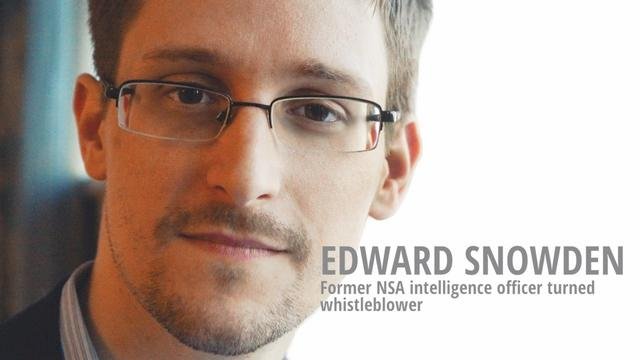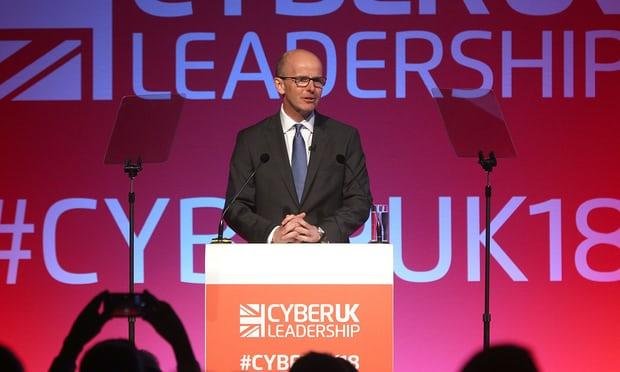
Edward Snowden has no second thoughts five years on from releasing the greatest store of best mystery archives ever. He is needed by the US. He is in a state of banishment in Russia. In any case, he is happy with the way his disclosures of mass observation have shaken governments, insight organizations and real web organizations.
In a telephone meeting to stamp the commemoration of the day the Guardian broke the story, he reviewed the day his reality – and that of numerous others around the world – changed for good. He rested in his Hong Kong lodging room and when he woke, the news that the National Security Agency had been vacuuming up the telephone information of a large number of Americans had been live for a few hours.
Snowden knew right then and there his previous lifestyle was finished. "It was startling however it was freeing," he said. "There was a feeling of irrevocability. There was no returning."
The dreamlike minute the Guardian decimated the Snowden records
Read more
What has occurred in the a long time since? He is a standout amongst the most renowned escapees on the planet, the subject of an Oscar-winning narrative, a Hollywood motion picture, and no less than twelve books. The US and UK governments, based on his disclosures, have confronted court difficulties to observation laws. New enactment has been passed in the two nations. The web organizations, reacting to an open reaction over protection, have made encryption typical.
Snowden, weighing up the progressions, said some security campaigners had communicated frustration with how things have grown, however he didn't share it. "Individuals say nothing has changed: that there is as yet mass observation. That isn't the manner by which you measure change. Think back before 2013 and take a gander at what has occurred since. Everything changed."
The most imperative change, he stated, was open mindfulness. "The legislature and corporate segment went after our numbness. Be that as it may, now we know. Individuals know now. Individuals are as yet weak to stop it however we are attempting. The disclosures made the battle all the more even."
He said he had no second thoughts. "On the off chance that I had needed to be sheltered, I would not have left Hawaii (where he had been based, working for the NSA, before traveling to Hong Kong)."
His own life is indeterminate, maybe now like never before, he said. His asylum in Russia relies upon the impulses of the Putin government, and the US and UK insight offices have not excused him. For them, the issue is as crude as ever, a demonstration of treachery they say caused harm on a scale people in general does not understand.
This was reflected in an uncommon proclamation from Jeremy Fleming, the executive of the UK reconnaissance office GCHQ, which, alongside the US National Security Agency. was the primary subject of the break. In light of an inquiry from the Guardian about the commemoration, Fleming said GCHQ's main goal was to protect the UK: "What Edward Snowden completed five years prior was unlawful and traded off our capacity to do that, making genuine and superfluous harm the security of the UK and our partners. He ought to be responsible for that."

The outrage in the US and UK insight networks is over not exactly what was distributed – less than 1% of the archives – however stretches out to the unpublished material as well. They say they were compelled to take a shot at the presumption everything Snowden at any point approached had been endangered and must be dumped.
There was an or more for the offices. Having rejected so much, they were compelled to create and put in new and preferable capacities speedier over arranged. Another change came in the territory of straightforwardness. Before Snowden, media solicitations to GCHQ were generally met with no remark while now there is to a greater degree a readiness to lock in. That Fleming reacts with an announcement mirrors that stepchange.
In his announcement, he communicated a pledge to transparency yet distinctly did not credit Snowden, saying the change originated before 2013. "It is critical that we keep on being as open as we can be, and I am focused on the trip we started over 10 years prior to more noteworthy straightforwardness," he said.
Others in the knowledge network, particularly in the US, will grudgingly credit Snowden for beginning a truly necessary verbal confrontation about where the line ought to be drawn amongst security and observation. The previous agent executive of the NSA Richard Ledgett, while resigning a year ago, said the administration ought to have made open the reality there was mass accumulation of telephone information.
The previous GCHQ executive Sir David Omand shared Fleming's evaluation of the harm yet conceded Snowden had added to the presentation of new enactment. "A sounder and more straightforward lawful structure is currently set up for essential insight gathering. That would have happened in the end, obviously, yet his activities positively hurried the procedure," Omand said.
The US Congress passed the Freedom Act in 2015, controling the mass accumulation of telephone information. The UK parliament passed the argumentative Investigatory Powers Act multi year later.
Ross Anderson, a main scholastic spend significant time in cybersecurity and protection, sees the Snowden disclosures as an original minute. Anderson, a teacher of security designing at Cambridge University's PC lab, stated: "Snowden's disclosures are one of these flashbulb minutes which change the way individuals take a gander at things. They might not have changed things much in Britain due to our way of life for worshiping James Bond and every one of his works. Be that as it may, round the world it brought home to everybody that reconnaissance truly is an issue."
MPs and a great part of the UK media did not connect with to a similar degree of their partners somewhere else in Europe, the US, Latin America, Asia and Australia. Among the exemptions was the Liberal Democrat MP Julian Huppert, who squeezed the issue until the point that he lost his seat in 2015. "The Snowden disclosures were an enormous stun however they have prompted a significantly more prominent straightforwardness from a portion of the organizations about the kind of the things they were doing," he said.
Notice
One of the divulgences to have most effect was around the degree of joint effort between the insight offices and web organizations. In 2013, the US organizations were beating the EU in arrangements over information assurance. Snowden landed like a bomb amidst the transactions and the information insurance law that produced results a month ago is an outcome.
A standout amongst the most unmistakable impacts of the Snowden disclosures was the little yellow rise that started flying on the informing administration WhatsApp in April 2016: "Messages to this visit and calls are currently anchored with end-to-end encryption."
Before Snowden, such encryption was for the focused on and the jumpy. "In the event that I can take myself back to 2013," said Jillian York, the chief for universal flexibility of articulation at the advanced rights bunch the Electronic Frontier Foundation, "I perhaps had the antecedent to [the encoded correspondence app] Signal on my telephone, TextSecure. I had [another email encryption tool] PGP, yet no one utilized it." The main significant special case was Apple's iMessage, which has been end-to-end scrambled since it was propelled in 2011.
Designers at significant innovation organizations, offended by the Snowden revelations, began pushing back. A few, for example, those at WhatsApp, which was purchased by Facebook multi year after the story broke, executed their own encryption. Others, for example, Yahoo's Alex Stamos, stopped as opposed to help additionally spying. (Stamos is presently the head of security at Facebook.)
"Without Snowden," said York. "I don't figure Signal would have the subsidizing. I don't figure Facebook would have had Alex Stamos, on the grounds that he would have been at Yahoo. These seemingly insignificant details prompted enormous things. Dislike every one of these organizations resembled "we think about protection". I think they were pushed."
Different moves in the innovation area demonstrate Snowden's impact has from numerous points of view been constrained. The ascent of the "keen speaker", exemplified by Amazon's Echo, has left numerous protection activists perplexed. Why, only a couple of years after a worldwide embarrassment including government reconnaissance, would individuals readily introduce dependably on mouthpieces in their homes?
Ad
"The recently discovered protection problem displayed by introducing a gadget that can truly tune in to all that you're stating speaks to a chilling new improvement in the period of web associated things," composed Gizmodo's Adam Clark Estes a year ago.
Towards the finish of the meeting, Snowden reviewed one of his initial assumed names, Cincinnatus, after the Roman who after open administration came back to his homestead. Snowden said he too felt that, having assumed his part, he had withdrawn to a calmer life, investing energy creating apparatuses to enable writers to secure their sources. "I don't think I have ever been more satisfied," he said.
Be that as it may, he won't check the commemoration with a "triumph lap", he said. There is still much to be finished. "The fightback is simply starting," said Snowden. "The administrations and the corporates have been in this diversion quite a while and we are simply beginning."
Congratulations @hamzazaman77! You received a personal award!
You can view your badges on your Steem Board and compare to others on the Steem Ranking
Vote for @Steemitboard as a witness to get one more award and increased upvotes!